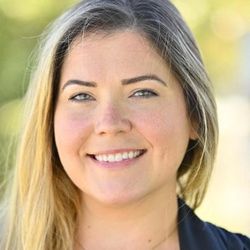Myofunctional therapy is a targeted treatment approach that addresses orofacial myofunctional disorders (OMDs) by retraining the muscles of the face, mouth, and throat. By focusing on functional exercises and retraining habits, myofunctional therapy helps correct breathing, swallowing, chewing, and speech issues, contributing to improved long-term oral health. In Santa Clara, CA, individuals experiencing orofacial issues can access specialized treatment from trained professionals who use this therapy to address underlying functional issues affecting daily life. Consulting a dentist in Santa Clara, CA, for myofunctional therapy can be an effective path to achieving better muscle balance, improved breathing, and greater overall comfort.
What is Myofunctional Therapy?
Myofunctional therapy is designed to correct dysfunctions in orofacial muscles by using a series of specialized exercises. These exercises aim to retrain the muscles associated with breathing, chewing, swallowing, and speaking. When these muscles function improperly, issues such as mouth breathing, improper tongue posture, and poor oral habits can develop, leading to complications with dental alignment, sleep quality, and even digestion.
In some cases, myofunctional therapy can be enhanced with ozone therapy, which uses medical-grade ozone to reduce oral bacteria and promote healing. Ozone therapy can complement myofunctional therapy by addressing infections or inflammation that might interfere with muscle function and alignment, creating a healthier environment for orofacial muscles to respond effectively to exercises.
A skilled dentist in Santa Clara, CA, can provide both myofunctional and ozone therapy tailored to each individual’s unique needs. Myofunctional therapy is particularly beneficial for children whose muscle patterns are still developing but can also be highly effective for adults looking to address longstanding orofacial issues. Contact us to learn more.
Common Symptoms and Conditions Addressed by Myofunctional Therapy
Myofunctional therapy can help with a variety of symptoms and conditions, including:
- Sleep Apnea and Snoring: Improper tongue and mouth positioning often contribute to airway blockages during sleep, a common issue in conditions like sleep apnea. Myofunctional therapy focuses on exercises that strengthen and reposition the tongue, improving breathing patterns and reducing the likelihood of airway obstructions.
- Orthodontic Issues and Relapse: Misaligned teeth or bite problems can often stem from poor oral posture or habits like tongue thrusting. Patients who have undergone orthodontic treatment may also benefit from myofunctional therapy to help stabilize their results and prevent relapse.
- Tongue Thrusting: Tongue thrust, a habit where the tongue pushes against or between the teeth, can disrupt dental alignment and cause speech issues. Myofunctional therapy retrains the tongue to stay in the correct position, reducing the risk of dental misalignment.
- Mouth Breathing: Chronic mouth breathing can lead to dry mouth, bad breath, and other dental problems. Myofunctional therapy helps patients learn to breathe through their nose, which is healthier for oral and overall health.
- Speech Disorders: Myofunctional therapy can benefit individuals with speech issues related to muscle dysfunction, such as lisping or difficulty pronouncing specific sounds. Exercises aim to improve muscle control and tongue placement, enhancing speech clarity.
How Myofunctional Therapy Works
Myofunctional therapy involves a personalized exercise program that helps patients gain control over the muscles in their mouth and face. The exercises are typically conducted under the guidance of a professional, such as a dentist in Santa Clara, CA, and may include the following components:
- Tongue Exercises: These exercises focus on improving tongue strength and control. Patients learn to place their tongue in a neutral position, essential for correct breathing and swallowing patterns.
- Breathing Exercises: Since many people with OMDs breathe primarily through their mouths, myofunctional therapy includes exercises that encourage nasal breathing. Proper breathing patterns can improve oxygen intake, lower blood pressure, and reduce risks associated with mouth breathing.
- Chewing and Swallowing Exercises: Improper swallowing patterns are common in individuals with OMDs. Therapy involves training patients to swallow without engaging the facial muscles improperly, which helps prevent dental and alignment issues.
- Posture Training: Posture, especially the position of the head and neck, can have a significant impact on orofacial muscle function. Exercises may focus on body posture to support healthier oral habits.
Who Can Benefit from Myofunctional Therapy?
People of all ages can benefit from myofunctional therapy. Early intervention can prevent the development of bad habits and misalignment issues for children, potentially reducing the need for orthodontic treatments later on. Adults can also see improvements, particularly those who struggle with sleep apnea, bruxism (teeth grinding), or speech issues. By working with a dentist in Santa Clara, CA, experienced in myofunctional therapy, patients can address the root cause of these issues and achieve lasting results.
The Impact of Myofunctional Therapy on Overall Health
Beyond improving orofacial function, myofunctional therapy can positively affect general health. For example:
- Better Sleep Quality: Myofunctional therapy can improve breathing patterns during sleep, reduce sleep apnea symptoms, and lead to better rest and more energy.
- Enhanced Orthodontic Outcomes: Myofunctional therapy helps preserve orthodontic results and prevent future misalignments by training the muscles to support proper dental alignment.
- Reduced Risk of Dental Issues: Chronic mouth breathing can lead to dry mouth, which increases the risk of tooth decay and gum disease. Myofunctional therapy encourages nasal breathing, which helps protect oral health.
- Improved Speech: Speech clarity often improves as patients gain better control over their tongue and facial muscles, making communication easier and more effective.
Taking the Next Steps Toward Myofunctional Therapy in Santa Clara, CA
At Well Being Dentistry, we are currently working on adding a trained myofunctional therapist to our team. In the meantime, we can provide referrals and help you find the care that you need.
To schedule an appointment with us at Well Being Dentistry, located at 3993 Stevens Creek Blvd, Santa Clara, CA 95051. For bookings and consultations, call (408) 244-0590. Please visit our official website today to learn more about the various services we provide.



